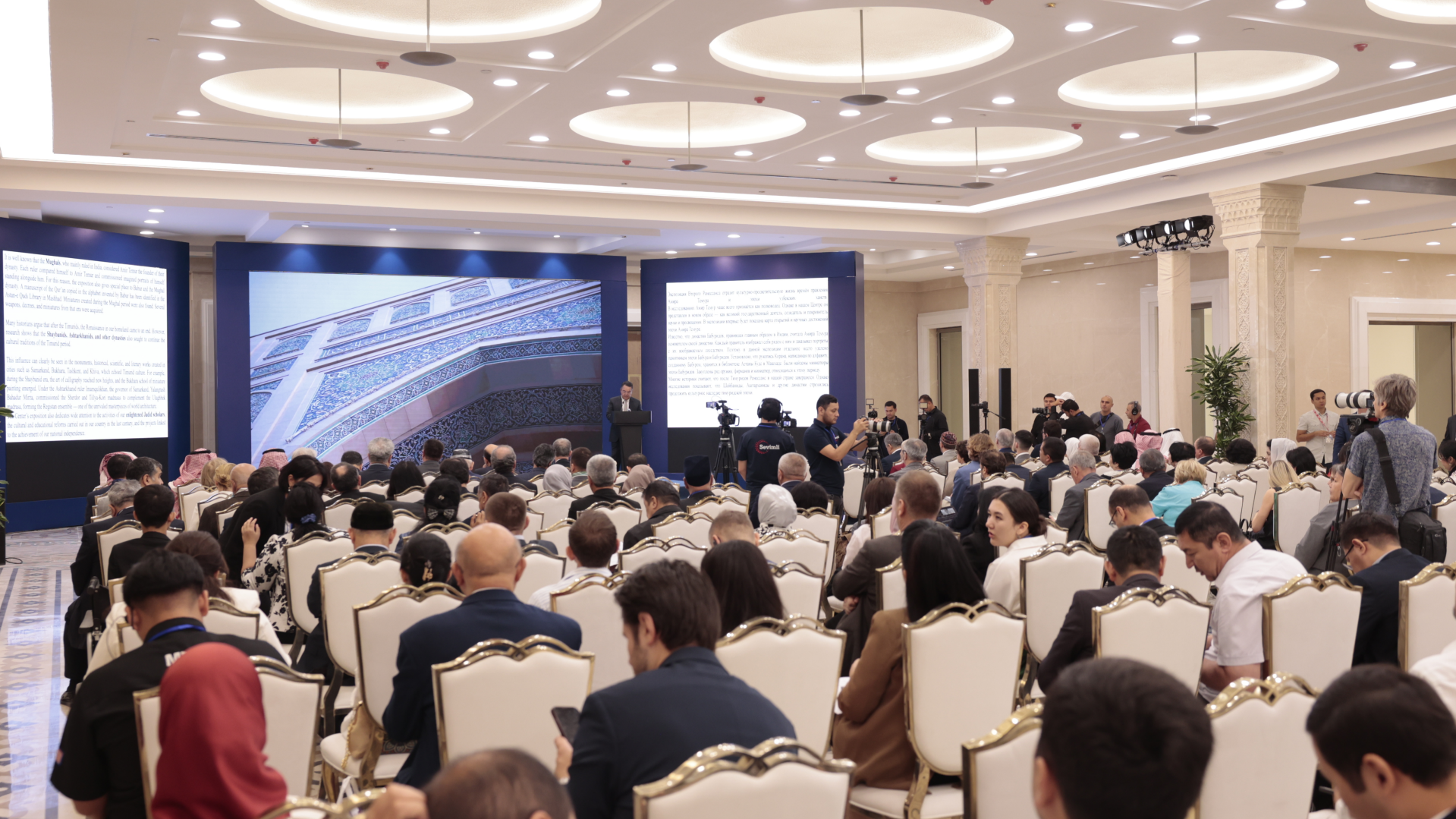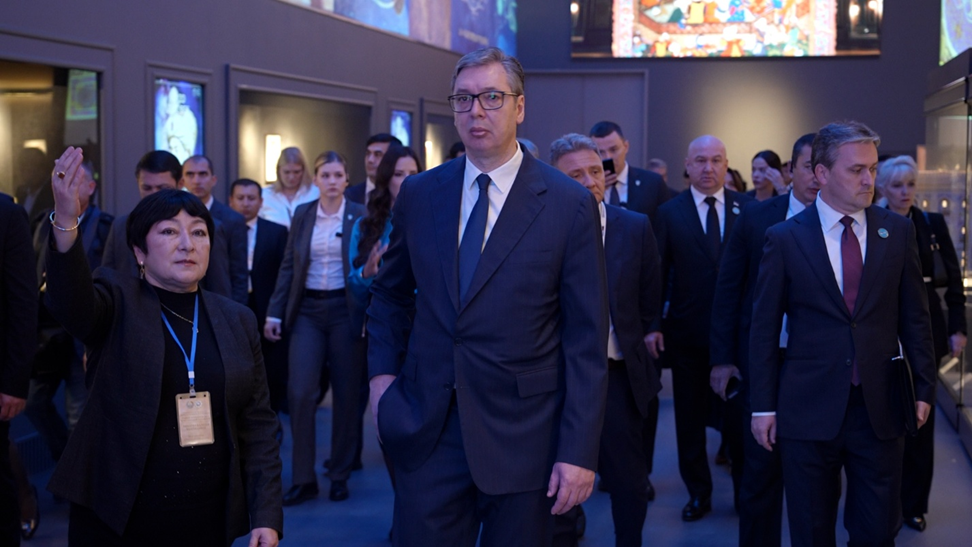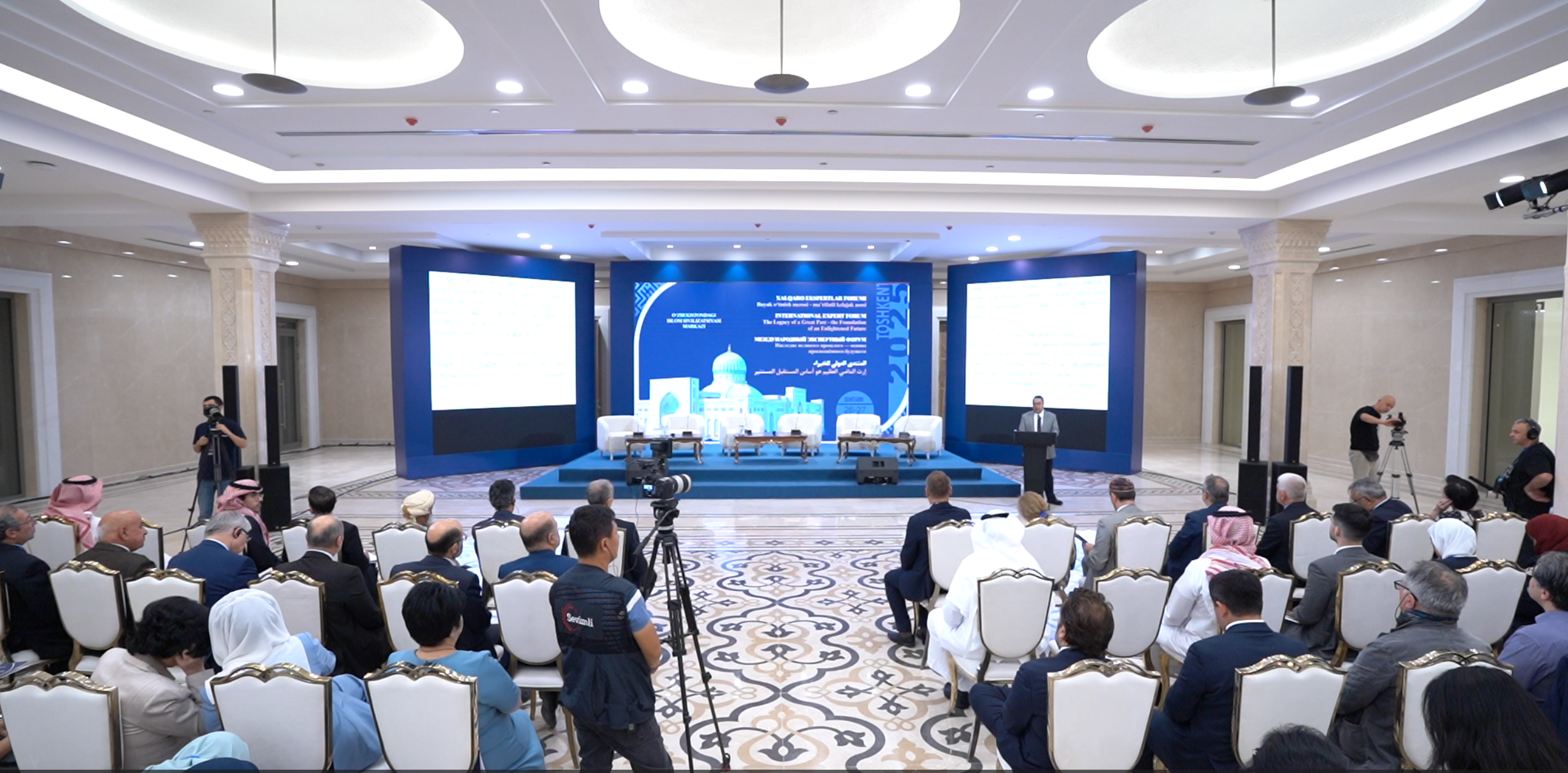Rare waqf documents from the era of Amir Temur have been presented to the Center of Islamic Civilization
🔴 Waqf documents that reflect the legal traditions of the Timurid era
🔴 Sources that unite law, history, and enlightenment

The exhibition of the Center of Islamic Civilization in Uzbekistan has been enriched with another historical gem two rare waqf documents from the era of Amir Temur have been added to the museum’s collection.
These documents, presented by the National Archives of Uzbekistan, are waqf deeds compiled with the personal involvement of the Great Amir Temur and reflect the socio-economic relations of that time. They are now exhibited as highly valuable artifacts at the Center.
The first document over 5 meters long and 30 cm wide describes the waqf of fertile lands in the Yarkent region of Samarkand. The second document, measuring 1.5 meters in length and 30 cm in width, concerns the waqf of a mill, pack animals, shops, and other fertile areas in connection with the Hazrat Khoja Arif shrine located in the Shofirkon district of Bukhara.
These are now referred to as the Samarkand waqf deed and the Bukhara waqf deed, respectively.
Both documents contain valuable insights into the legal traditions of the Timurid period, as well as the policies aimed at promoting public welfare and supporting religious and educational institutions.
The waqf deeds delivered to the Center of Islamic Civilization are not merely documents they are living witnesses of history. They represent a spiritual heritage, a scholarly source, and a symbol of national pride for future generations.
Most read

Over 100 experts from more than 20 countries of the world are in Tashkent!

President of Serbia Aleksandar Vučić visited the Islamic Civilization Center in Uzbekistan

The Center for Islamic Civilization – a global platform leading towards enlightenment











